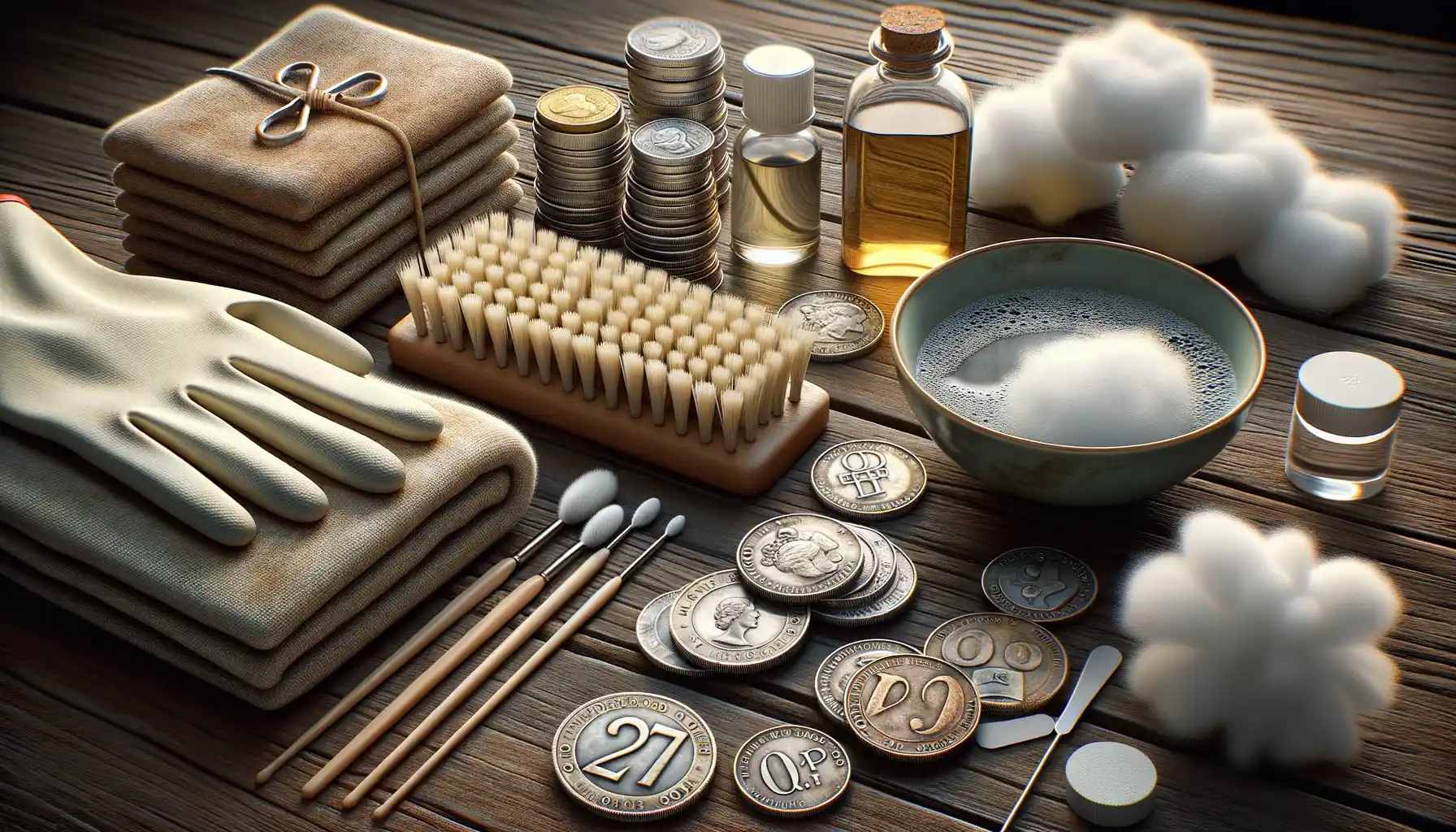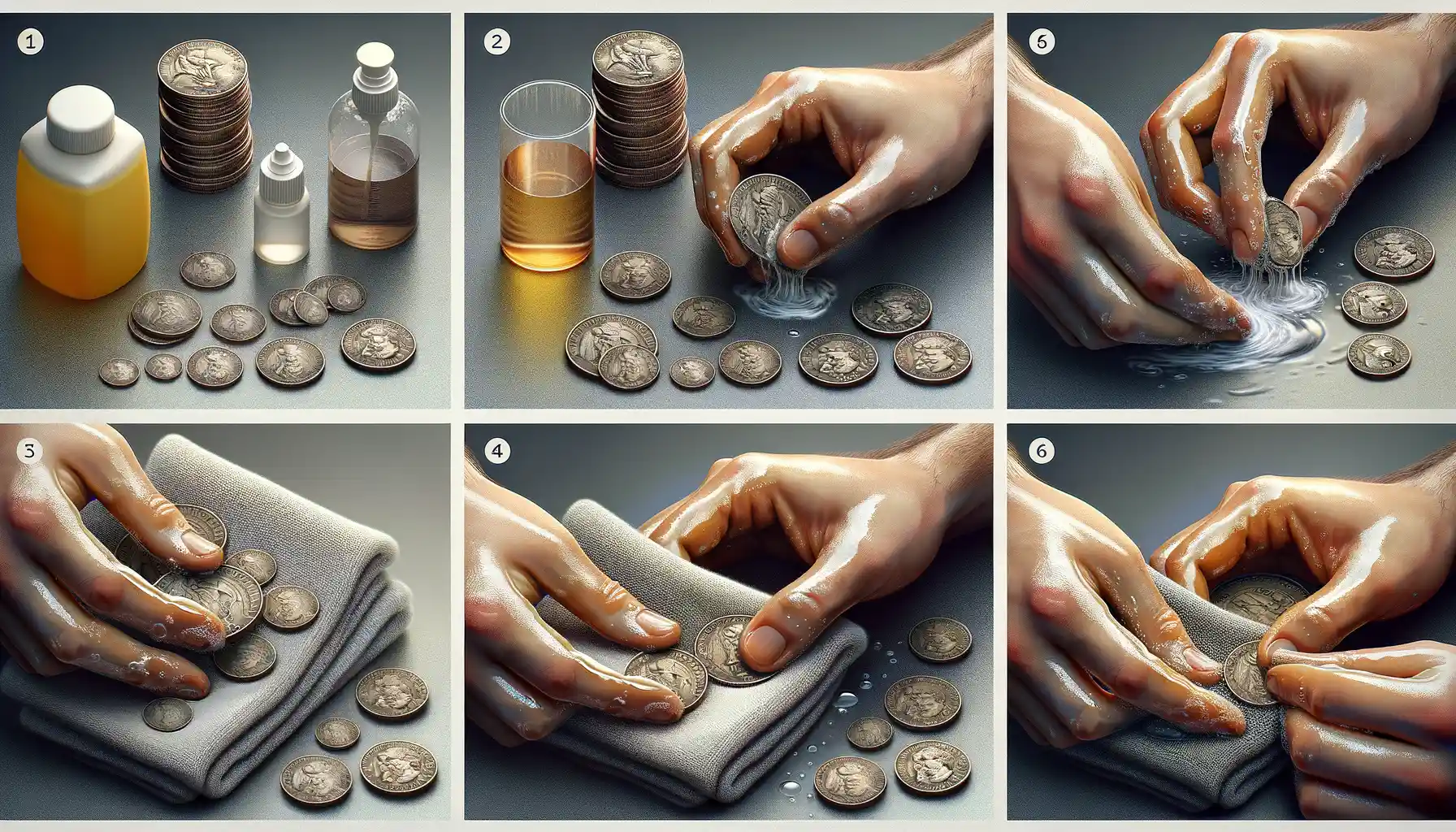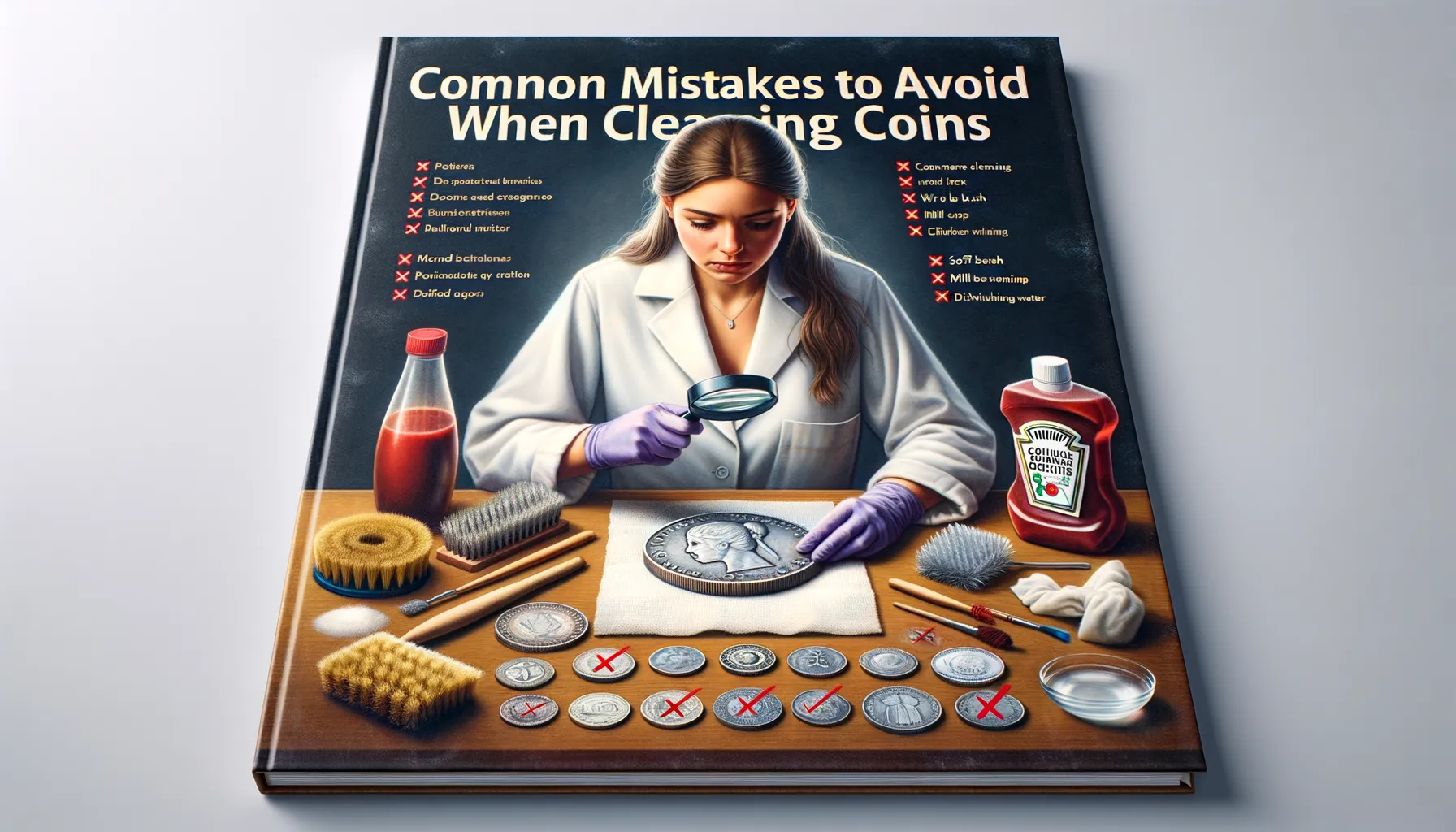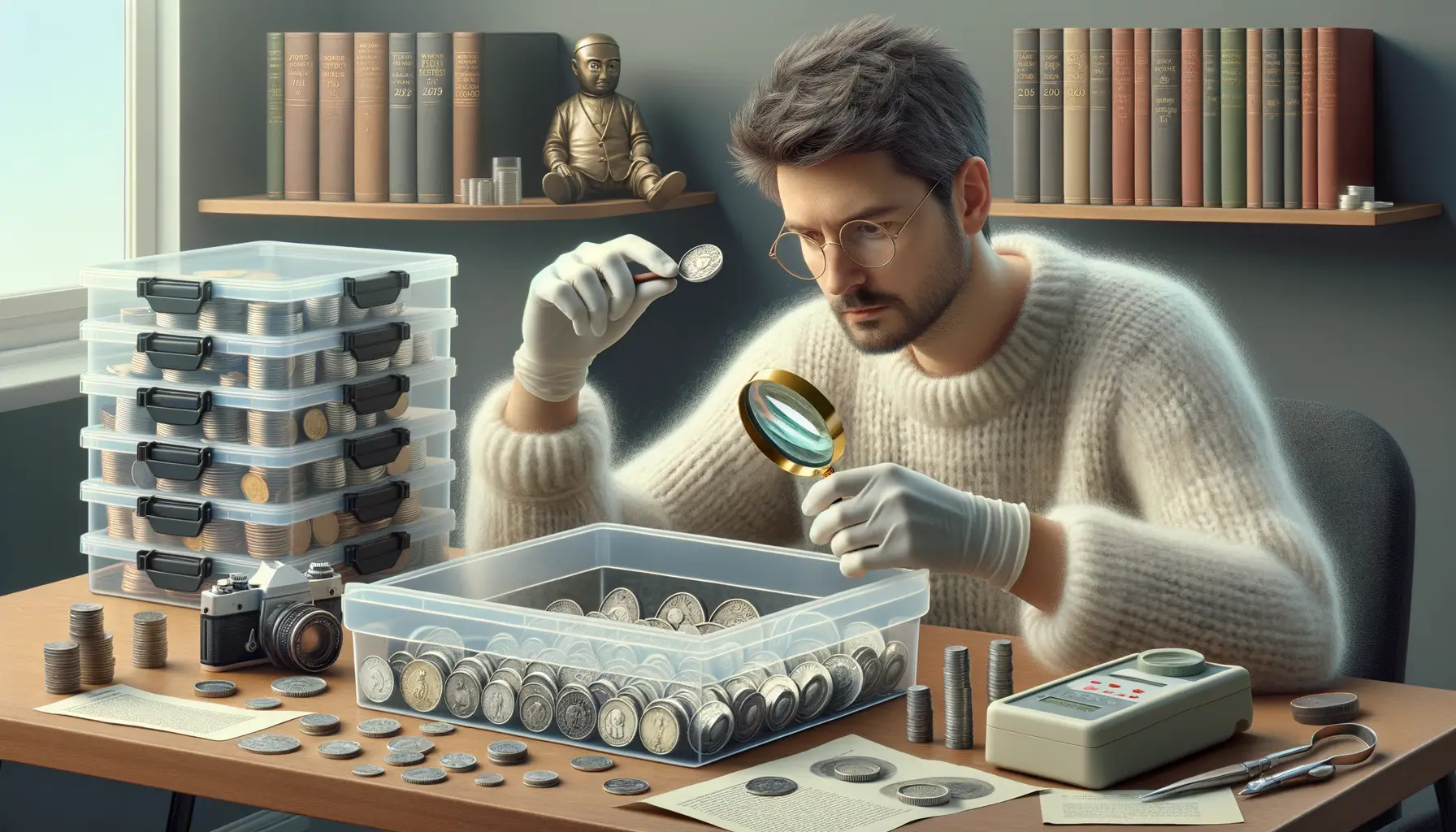Understanding the Importance of Proper Coin Cleaning
Why the Way You Clean Coins Matters More Than You Think
Imagine holding a coin that’s traveled centuries, passed through countless hands, and witnessed history unfold. Each scratch, discoloration, or mark tells a story—but cleaning it carelessly? That could erase those tales forever. This isn’t just about making coins look shiny, it’s about *preserving their soul*.
Improper cleaning can strip away delicate surfaces, ruining rare details and slashing a coin’s value faster than you can say “Oops!” Collectors dread words like “abrasion” or “corrosion,” both of which can result from hasty or uninformed cleaning attempts. If you’ve ever felt tempted to grab a random cleaner or scrub frantically with a toothbrush, pause! It’s time to rethink your approach.
- Historical Significance: Coins often preserve more than just monetary history—they’re art pieces in miniature. What looks like grime may actually be a natural patina, increasing its worth.
- Aesthetic Integrity: A gentle clean enhances a coin’s beauty without erasing fine engravings or altering finishes like silver toning.
A coin is more than metal; it’s a memory in your palm. Handle it with care—your future self (and any appraising expert) will thank you.
Tools and Materials You Need for Cleaning Coins

Essential Tools That Make Coin Cleaning a Breeze
When it comes to cleaning coins, having the right tools in hand can make you feel like a master jeweler uncovering hidden treasures. Without them, you’re essentially trying to paint a masterpiece with a broom—frustrating and entirely unproductive! So, let’s talk about what you’ll need in your coin-cleaning arsenal:
- Soft-bristled toothbrush: Think of this as your gentle scrubbing companion, perfect for dislodging dirt without scratching delicate surfaces.
- Plastic or glass bowls: Avoid metal bowls, as they might chemically interact with your cleaning solution—your coins deserve better!
- Distilled water: Tap water contains minerals that can leave residue. Distilled water is your coin’s best friend for a pure rinse.
- Cotton gloves: Protects your coins from oils on your skin. Remember, fingerprints aren’t exactly a historic addition collectors admire!
- Microfiber cloth: No lint, no scratches, just smooth drying perfection.
The Magic of Simple Materials (That You Already Have!)
The good news? Most of what you need might already be in your home. For instance, a small dab of baking soda mixed with water creates a natural paste that’s gentle yet effective. Or perhaps you have white vinegar—a popular household cleaner that can help loosen stubborn grime on less precious coins.
And don’t underestimate the power of a humble toothpick! It’s perfect for clearing out tight grooves without harm. But here’s the catch: no digging too hard! Coins may look tough, but they hold thousands of tiny stories etched into their metal. Treat them like artifacts, not chores.
Step-by-Step Guide to Safely Cleaning Coins

Getting Started: Pre-Cleaning Essentials
Sometimes, cleaning coins feels like unlocking a secret treasure chest—you need the right “key” to avoid damaging what’s inside. Before you dive in, give your coins a gentle inspection. Is it covered in dirt or tarnish? Or maybe it’s green with corrosion? Identifying what you’re up against helps you choose the safest cleaning method. And here’s a golden rule: if your coin is historically valuable or rare, consult a professional first—sometimes leaving it untouched is the best care you can give.
Now, prep your space like an artist setting up their canvas! Lay out a soft cloth or towel to prevent accidental scratches, and make sure your tools are within arm’s reach. A couple of must-haves? A bowl of distilled water (tap water can be harsh), mild soap, and some cotton swabs. Oh, and patience—you’ll need plenty of that!
- Use gloves to keep oils from your hands off the coins.
- And remember, no abrasive brushes! Coins deserve better than a scratchy scrubbing pad.
The Gentle Process of Cleaning Coins
Ready for the delicate work? Start by soaking your coins in distilled water. Let them sit for a few hours or even overnight to loosen dirt. Once they’ve soaked, resist the urge to scrub. Instead, gently rub the surface with a cotton swab or soft cloth. Think of it as pampering, not cleaning—this isn’t your kitchen floor!
For tough grime, mix a tiny amount of mild soap into distilled water and repeat the soak. Just be sure to rinse thoroughly afterward (again, avoid tap water). And if there’s corrosion? Halt! This situation needs special attention, so research specific methods or seek expert advice.
Common Mistakes to Avoid When Cleaning Coins

Why “Scrubbing Harder” Is Not the Answer
Imagine you’ve just found a gorgeous antique coin. Excitement bubbling, you grab the nearest scrubber and *go to town*. Stop right there! One of the most common pitfalls is scrubbing too hard, thinking that effort equals cleanliness. In truth, this can scratch your coin’s delicate surface, stripping away its history like peeling paint off an old masterpiece.
Instead, trust softer approaches. Let the dirt loosen naturally with a soak in distilled water or a gentle rub using a microfiber cloth. No steel wool, toothbrushes, or rough sponges should ever touch your treasures!
Big No-Nos with Cleaning Solutions
Ah, the temptation of household cleaners – vinegar, bleach, or even baking soda. While they may do wonders on kitchen counters, these harsh chemicals are like kryptonite for your coins. They can cause discoloration or irreversible damage to the finish.
Remember, less is more when it comes to cleaning agents! Stick with these safe alternatives:
- Distilled water: Your coin’s best friend—pure and gentle.
- Mild soap: Use sparingly. Even a tiny drop can go far!
Every coin tells a story. Treat them with the respect they deserve!
Tips for Long-Term Coin Preservation

Protecting Your Coins Like Precious Relics
Think of your coin collection as a time capsule—each piece tells a story, and it’s your job to ensure those stories aren’t erased by the grind of time. Preservation starts with something as simple yet vital as storage. Coins hate moisture and chaos, so give them a peaceful home!
- Avoid plastic bags—they trap humidity like a greenhouse. Instead, use acid-free coin flips or sturdy capsules designed for collectors.
- Invest in a coin album built for long-term protection, keeping coins separated to prevent scraping or tarnishing.
The Fine Art of Handling and Placement
Your fingers? A coin’s worst nightmare. Skin oils may be harmless to you, but over time, they’re like silent poison to metal. Always handle coins by the edges, ideally with gloves. And remember, even stacking can be risky—those tiny scratches add up! Displaying coins? Store them somewhere cool and dry. Basements and attics are tempting but often become moisture traps. Aim for consistency—metals despise rapid temperature swings.
Finally, don’t forget to check on your treasures every now and then. Imagine them as old friends needing a quick hello; your occasional care will make all the difference in preserving their luster and history.